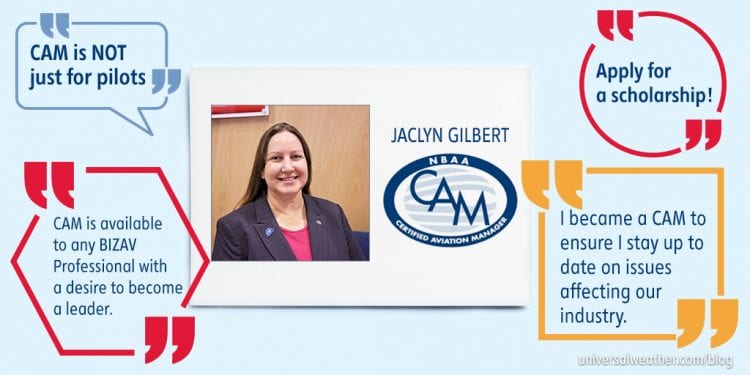Am I eligible to become a Certified Aviation Manager (CAM)?

If you’ve managed to find your way to this article, it’s safe to say you likely work in business aviation (or want to) and are looking for ways to advance your career into a leadership role. A quick Google search for Certified Aviation Manager or CAM will pull up a myriad of good resources and articles explaining the benefits of the program.
I won’t rehash those in this article. My intent here is to simply share my personal views on the program, clear up a common misconception, and share what it’s meant for me professionally, allowing you to make your own decision on if pursuing a CAM certification is the right choice for you.
CAM is just for pilots – WRONG!
One of the biggest misconceptions about becoming a CAM is that you have to be a pilot. This is NOT true. Although many pilots are CAMs, the program is open to anyone who works in business aviation, including mechanics, flight attendants, schedulers, dispatchers, even people like me, whose background is primarily in international trip planning.
Becoming a CAM is available to any business aviation professional with a desire to become a leader and to elevate the business aviation industry. That said, there are educational and experience requirements that candidates must complete in order to submit a CAM application. You can review those here.
Why I chose to become a CAM
For me, earning my CAM was about personal and professional development. When I first learned about the CAM program, I did not have enough points to qualify. I worked with my manager to create an individual development plan (IDP) that would help me earn enough points to qualify.
Preparing for and taking the CAM exam required a lot of hard work and determination, but it was well worth all the effort it took. I can’t even put into words the sense of accomplishment I felt when I received notification I had passed the exam and earned the CAM designation.
I also became a CAM to ensure I stay up to date on issues affecting our industry. The CAM recertification process ensures CAMs remain current on industry changes and best practices. So don’t look at earning your CAM as a one-time thing. It’s an ongoing process and you must be committed to continual learning and growth.
How long does it take to earn your CAM?
This will vary for each individual depending on how many points they currently have. The one constant is that all CAM candidates must have at least two years of experience in business aviation, regardless of how many points they have. I recommend reviewing the CAM Candidate Information Handbook and determine how many points you have. If you have enough points, then complete the application, study for the exam, and take the exam. Once your application is approved, your authorization to test will be valid for two years. If you do not have enough points, then create a plan like I did to earn the needed points.
My personal tips for earning your CAM
- Start by reviewing the Candidate Information Handbook
- Utilize the resources available and suggested by NBAA such as:
- Familiarize yourself with the FARs
- Step outside your comfort zone
-
- Connect with others pursuing their CAM certification
- Attend CAM information sessions at NBAA events like BACE and Schedulers and Dispatchers. Another would be through an independently-sponsored CAM preparation course.
- Connect with others pursuing their CAM certification
- Form a cross-functional study group so you can learn from each other’s strengths
-
Apply for scholarships and benefits
NBAA, as well as other organizations such as Women in Corporate Aviation, offer scholarships for those wanting to pursue their CAM certification. Even if your company is willing to pay for the CAM exam fee, some scholarships will help cover the cost of the study guide, application fee, and/or PDP courses.
As of Sept. 30, 2014, the CAM program is eligible to receive VA benefits. If you are a qualifying veteran, you can apply for reimbursement of your testing fee. Visit the Veterans Benefits Administration website for more information.




